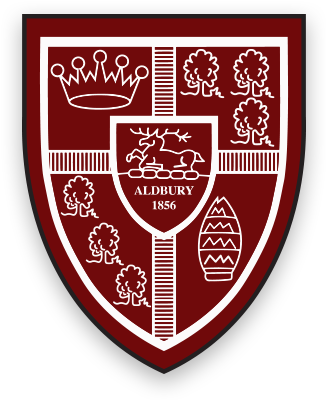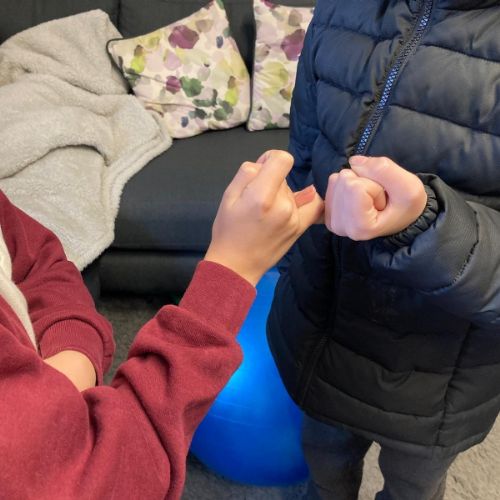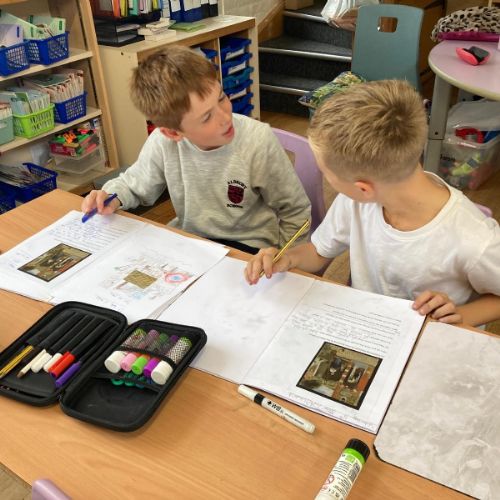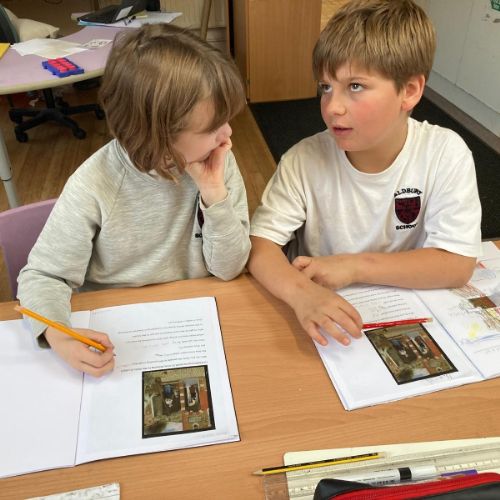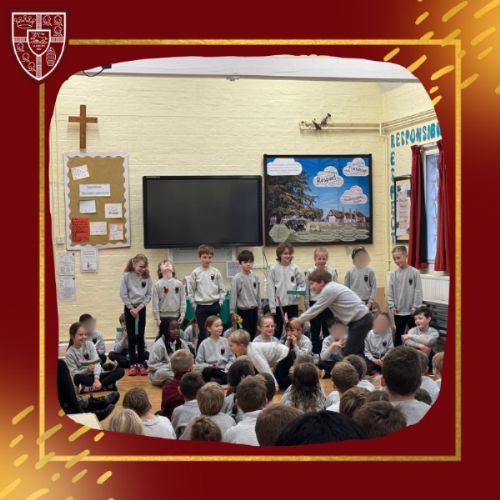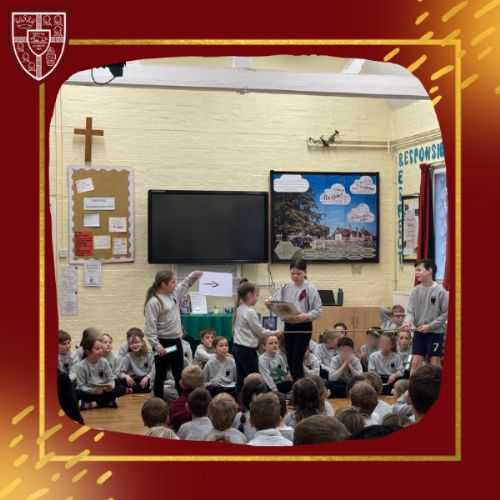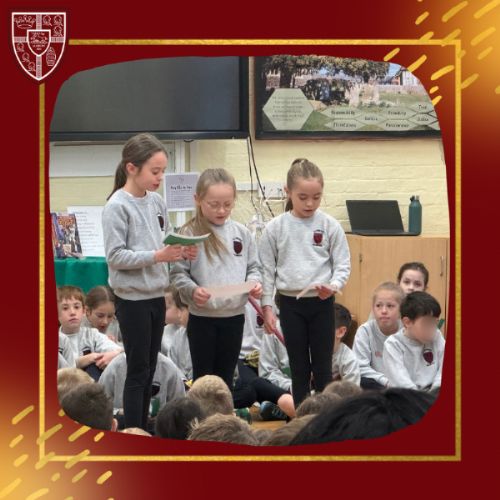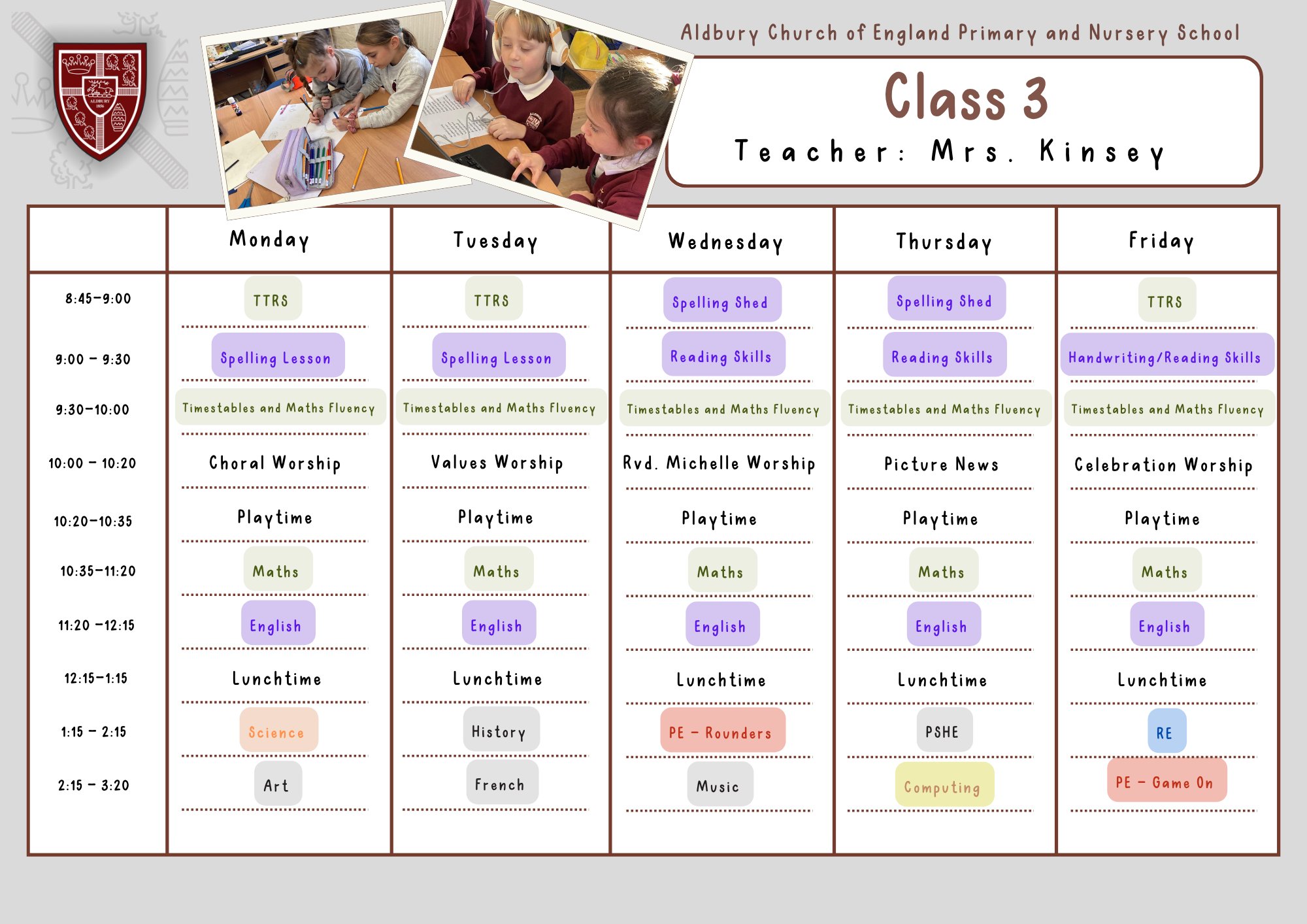Class 3
Hello. My name is Mrs Kinsey and I teach Class 3 (Years 3 and 4) supported by Mrs Kyte, our Learning Support Assistant.
This is my tenth year of teaching at Aldbury Primary School. I aim to foster independence in children as they move out of KS1, enabling them to be more resilient as they meet the new demands of KS2.
I am passionate about teaching Maths and helping children to enjoy and understand this important and often challenging subject. I also love teaching music and in Class 3 we sing regularly and with enthusiasm!
I hope that this page will keep parents and carers up to date with all the exciting things that are happening in Class 3. I am keen for the children to continue to discover all of the wonderful things that make Class 3 so enjoyable.
Outside of school, I enjoy taking part in musical theatre productions, singing in a choir, playing the flute, reading and visiting historic homes and palaces.
If you have any questions or concerns, do feel free to see me after school or leave me a message on Class Dojo.
